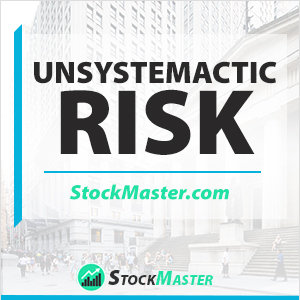What is Unsystematic Risk? Definition: Unsystematic risk refers to the danger that investors face when they buy certain asset. This risk is specific to the asset that the investor buys hence sometimes called specific risk. A risk that is specific to a particular asset in your portfolio is avoidable through diversification. Constructing a portfolio where
Category: Finance
Tax Avoidance
What is Tax Avoidance? Definition: Tax avoidance is where an individual or company uses avenues that allow them to pay less tax than they would otherwise be obligated to pay. There is a wise saying that death and taxes are one of the only things that are certain in life and that is somehow true
Securities
What are Securities? Definition: Securities are a prominent feature of the investment universe but, what do they stand for? By definition, a security is a debt or a proof of ownership that has monetary value and that the owner can sell. The owner of the security considers this financial instrument as an investment. The owner
Serial Bonds
What are Serial Bonds? Definition: Serial bonds are debt securities issued at once but mature at different dates. Usually, bonds are issued to enable the issuer to access capital for income generating projects. It becomes necessary to issue serial bonds to reduce the risk of defaulting. This is because the issuer will repay the bondholders
Return On Common Stockholders Equity (ROCE)
What is Return On Common Stockholders Equity (ROCE)? Definition: Return on common stockholders (ROCE) is a metric that measures the ability of a company to return value to shareholders. It is simply the ability of a company to generate net income for the benefit of shareholders. In its purest form, it is the proportion of
Risk Premium
What is Risk Premium? Definition: Risk premium is the returns that investors expect when they risk their money in an investment. You have probably heard the saying that there is no reward without risk, and that is entirely true, especially in the investment and insurance worlds. Risk premium is a common term used in the
Quick Assets
What are Quick Assets? Definition: Quick assets are resources that can easily be liquidated or easily be converted into cash in less than a year or in the short-term. Companies usually categorize their assets as either long-term assets or quick assets. Liquidity is the name of the game when it comes to quick assets because
Line of Credit (LOC)
What is A Line of Credit? Definition: A line of credit (LOC) is a preset amount of money that a financial institution agrees to lend. Similarly, it is an arrangement that establishes the maximum amount of money that the customer can borrow. In this case, a borrower can take money as a loan, repayable after
Liquidation
What is Liquidation? Definition: Liquidation is an event that occurs when a business is no longer able to meet its financial obligations. In this case, the process of ending the business is triggered, resulting in the distribution of business assets to claimants. The underlying assets are often used to settle any financial obligations that the
Loan Principal
What is a Loan Principal? Definition: A principal is the amount of money a person or a company borrows from a lender. It is also the amount of money, which a borrower agrees to pay a lender minus interest. Principal can also refer to the amount of loan remaining after making some payments. The principal










